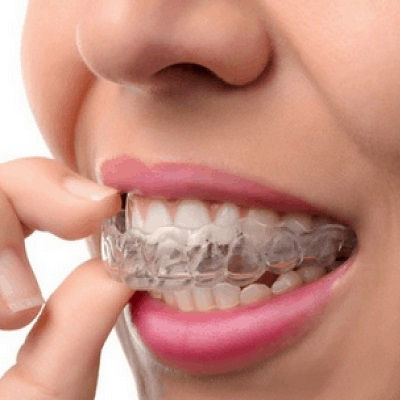The Benefits of Retainers After Overlapping Teeth Treatment
- anayageorge275
- Sep 21, 2024
- 3 min read
After undergoing treatment for overlapping teeth, often through braces or clear aligners, many patients may wonder about the next steps. One critical component in ensuring long-term success is the use of retainers. Here, we’ll explore the benefits of retainers after Overlapping Teeth Treatment in Dubai, their types, and tips for proper usage.
Understanding Overlapping Teeth:
Overlapping teeth, or dental crowding, can lead to a variety of dental issues, including difficulty in cleaning, increased risk of tooth decay, and potential jaw problems. Treatments such as orthodontic braces or clear aligners are designed to realign teeth into their correct positions. However, once treatment concludes, teeth can shift back to their original positions if not properly maintained.
Why Retainers Are Essential:
Maintaining Alignment:
The primary function of retainers is to keep teeth in their newly aligned positions after treatment. Teeth are prone to shifting for several months or even years post-orthodontic treatment, as the bone and soft tissue adapt to their new arrangement. Retainers help stabilize the teeth in their correct positions during this crucial period.
Preventing Relapse:
Without the use of retainers, there is a significant risk of relapse, where teeth begin to move back to their original, misaligned positions. Studies show that a high percentage of patients experience some degree of relapse without proper retention methods in place. Retainers act as a safeguard against this unwanted shift.
Custom Fit for Comfort:
Retainers are typically custom-made to fit snugly over your teeth, providing comfort while effectively holding them in place. Unlike bulky orthodontic devices, modern retainers can be discreet, making them easy to wear without affecting daily life.
Long-Term Oral Health:
Proper alignment of teeth not only enhances aesthetics but also improves oral health. Straight teeth are easier to clean, reducing the risk of cavities and gum disease. By wearing retainers, patients can maintain their treatment results and contribute to long-term dental health.

Convenience:
Retainers are generally easy to care for and can be incorporated seamlessly into daily routines. Patients can wear them overnight or as prescribed by their orthodontist, making them a convenient option for maintaining dental alignment.
Types of Retainers:
Fixed Retainers:
These are thin wires that are bonded to the back of the teeth, typically the lower front teeth. Fixed retainers offer continuous support and are ideal for patients at higher risk of relapse.
Removable Retainers:
Removable retainers, such as Hawley or clear plastic retainers, can be taken out for eating and cleaning. They are more flexible but require consistent wear to be effective.
Tips for Using Retainers:
Follow Your Orthodontist’s Instructions:
Adhere to the prescribed wear schedule provided by your orthodontist. Initially, this may involve wearing the retainer full-time, transitioning to nighttime wear as directed.
Maintain Good Hygiene:
Clean your retainer regularly using a soft toothbrush and mild soap. Avoid using hot water, which can distort the shape. Also, maintain your oral hygiene to prevent plaque buildup.
Report Any Issues Promptly:
If your retainer feels uncomfortable or if you notice any changes in fit, contact your orthodontist. Addressing issues early can prevent further complications.
Keep Your Retainer Safe:
When not in use, store your retainer in its case to prevent damage. Avoid wrapping it in tissue, as this can lead to accidental disposal.
Conclusion:
Retainers play a crucial role in the post-treatment phase for individuals who have undergone overlapping teeth treatment. They help maintain the alignment achieved through orthodontic procedures, prevent relapse, and contribute to overall oral health. By following the prescribed retention plan and caring for the retainers properly, patients can enjoy the benefits of their orthodontic treatment for years to come.


Comments